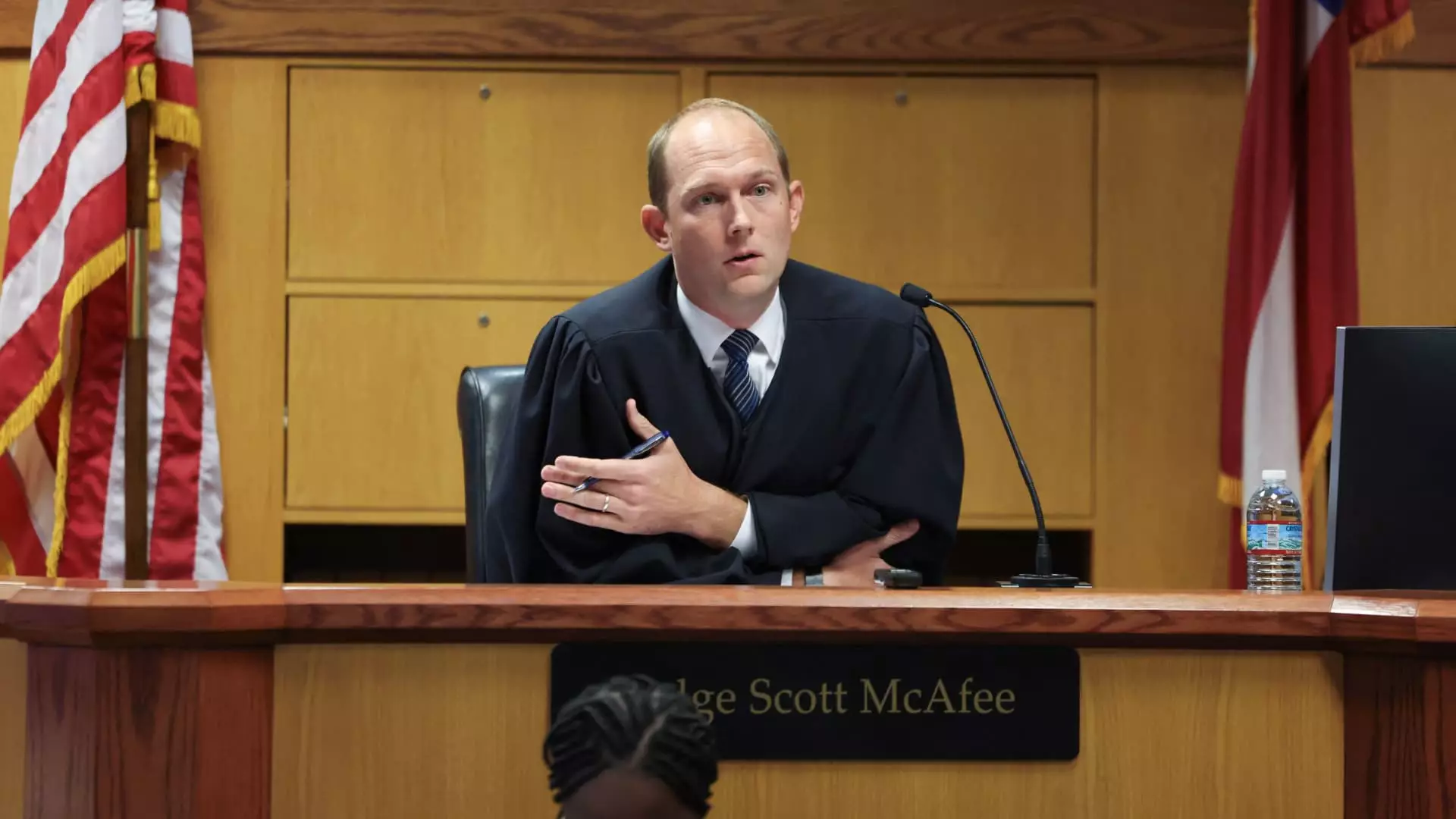In a recent ruling by Judge Scott McAfee in the Fulton County Superior Court in Atlanta, it was decided that the identities of the jurors in the Georgia election interference case involving former President Donald Trump would remain confidential until the end of the trial. This measure, aimed at protecting the jurors, is a response to the escalating threats made against officials in Fulton County, which prompted an FBI investigation.
To ensure the safety and privacy of the jurors, the judge’s order strictly prohibits the disclosure of names, addresses, telephone numbers, or any identifying employment information of the jury or potential jurors. Furthermore, the ruling also disallows the use of videos, photographs, or any other images, including drawings, that may reveal the identity of the jurors. However, audio recording will be permitted when the foreperson reads the verdict.
The decision to keep jurors anonymous stems from disturbing incidents that occurred earlier in the case. Trump supporters had taken it upon themselves to share the names and addresses of members of the grand jury involved in the indictment against the former president. Such actions posed a significant risk to the safety and well-being of the jurors and highlighted the need for stringent measures to protect their anonymity.
Juror anonymity is of utmost importance to ensure a fair and impartial trial. The exposure of jurors’ personal information can lead to various negative consequences, including intimidation, harassment, or even physical harm. By safeguarding the identities of the jurors, the judicial system aims to remove any external pressure or potential influence that may compromise the trial’s integrity.
In light of the sweeping Georgia racketeering case, wherein Trump faces 13 criminal counts alongside 18 co-defendants, it is crucial to uphold the principles of a fair trial. The charges against the defendants revolve around claims of illegal conspiracy to overturn President Joe Biden’s victory in the state’s 2020 election. All defendants have pleaded not guilty, and it is essential that the legal process proceeds without undue interference or bias.
The decision to maintain juror anonymity serves as a critical step in ensuring the integrity of the legal system. By protecting the identities of the jurors, the court can create a safe environment wherein they can make impartial decisions based solely on the evidence presented during the trial. Shielding jurors from external threats and intimidation allows them to fulfill their duty without fear or undue influence.
The decision to keep juror identities confidential in the Georgia election interference case is a necessary measure to guarantee a fair and unbiased trial. By safeguarding the privacy and safety of jurors, the court aims to uphold the principles of justice and preserve the integrity of the legal system. Such actions are crucial in fostering public trust in the judiciary and allowing for a fair resolution of the case at hand.


Leave a Reply